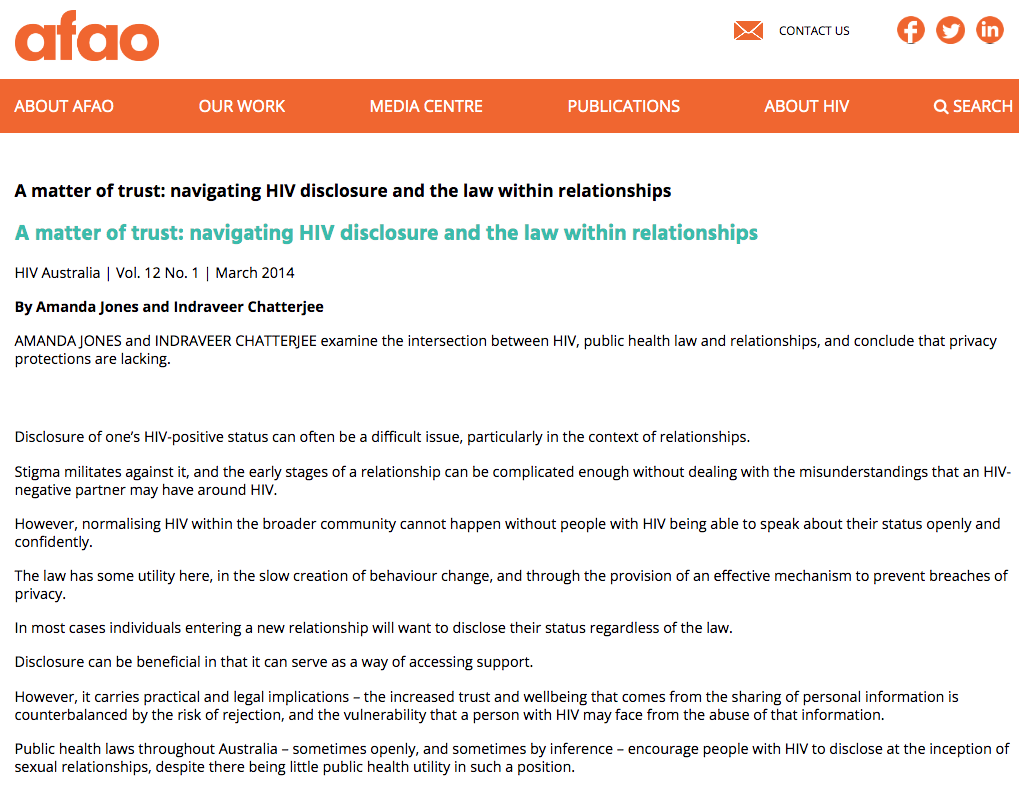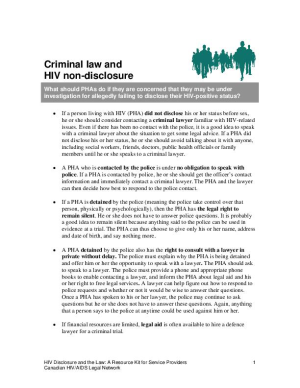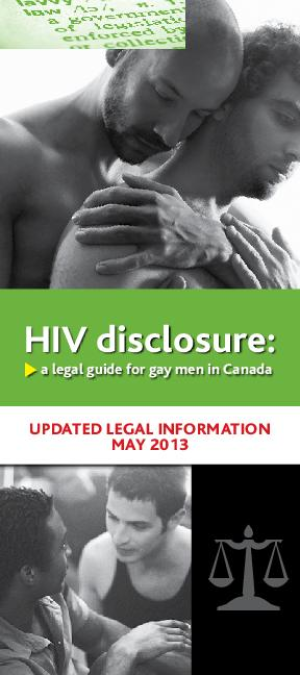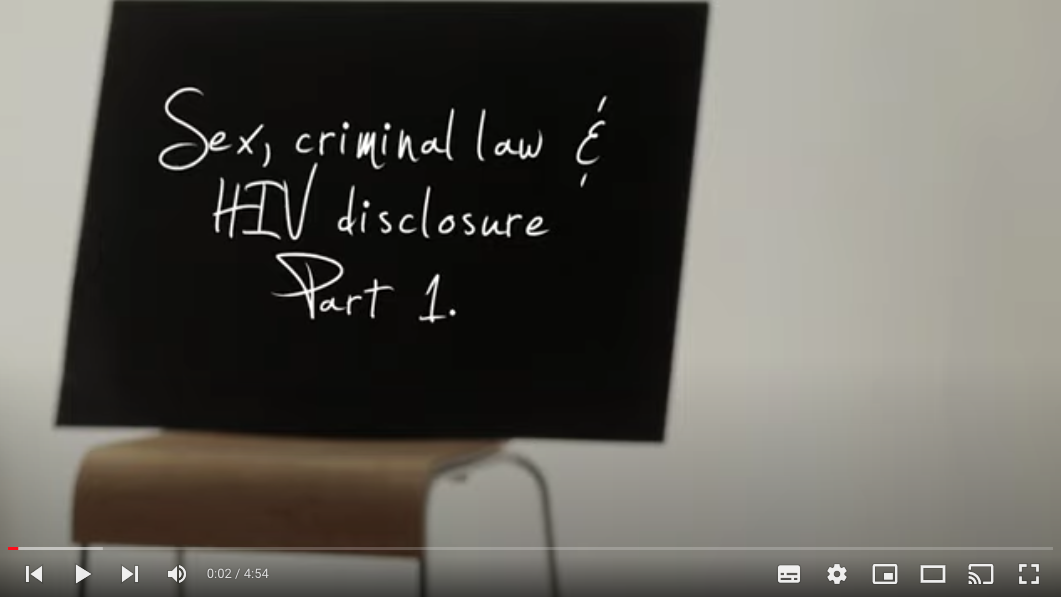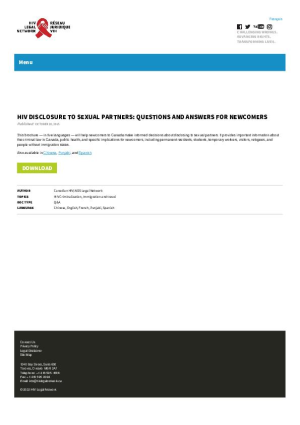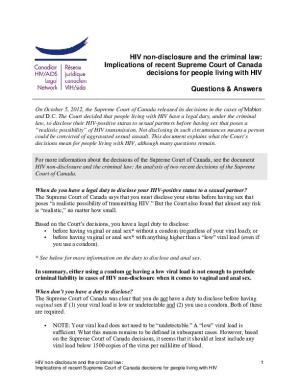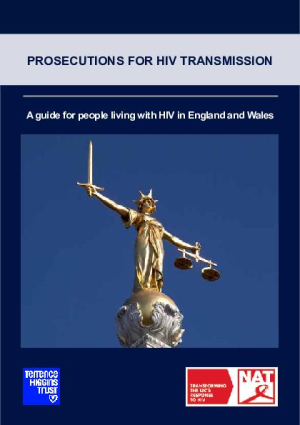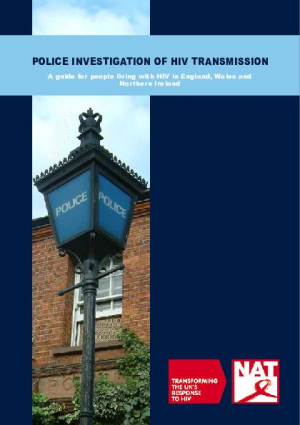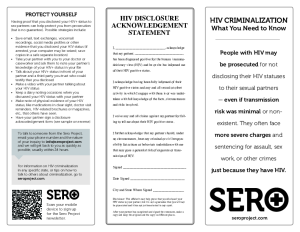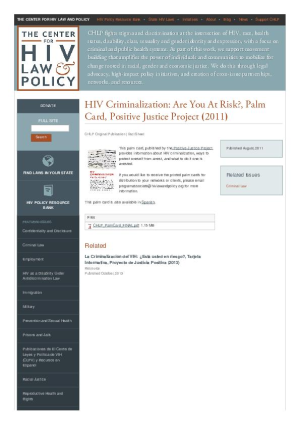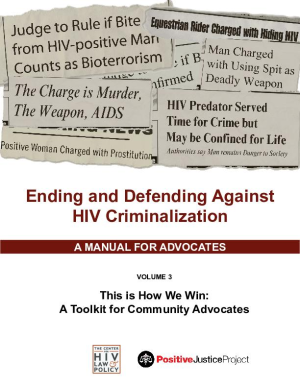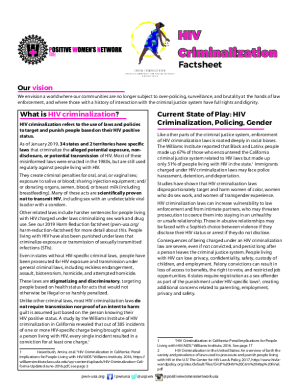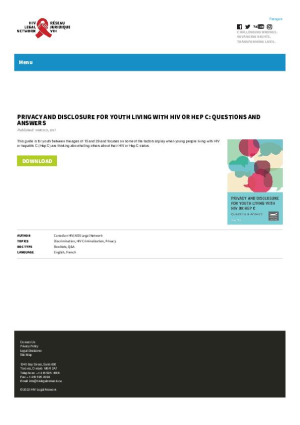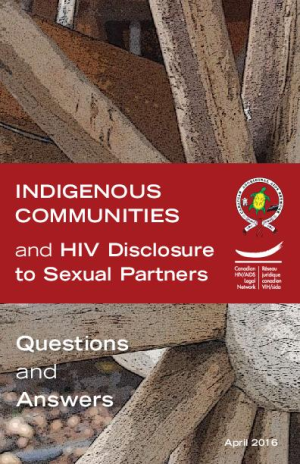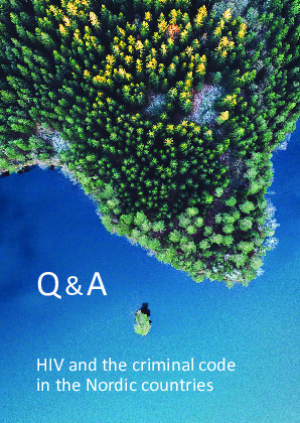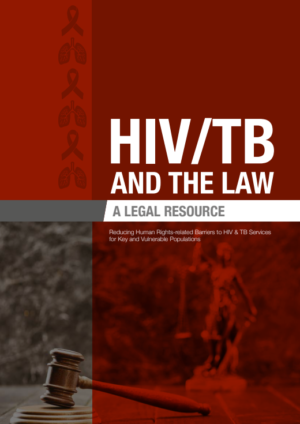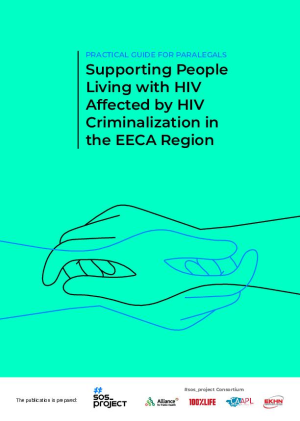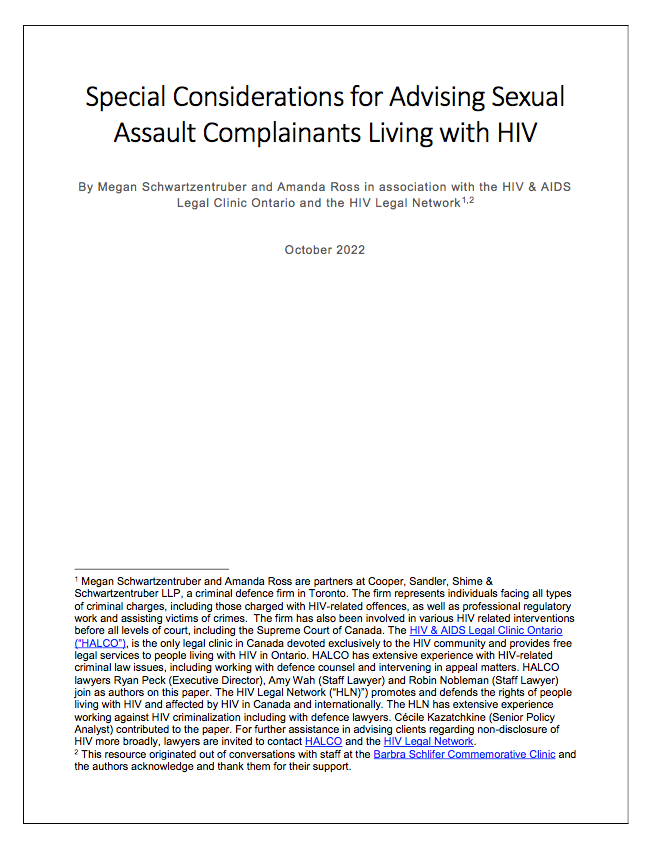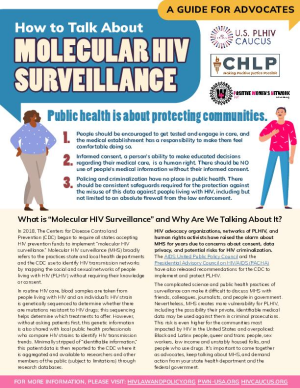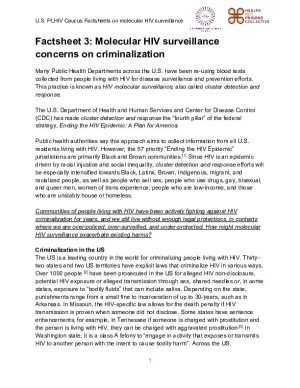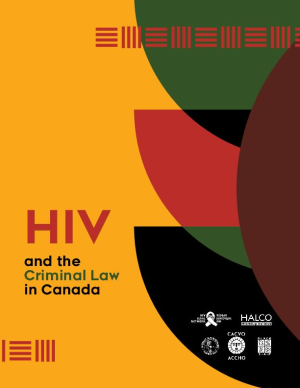Outlines issues associated with HIV disclosure, including an overview of laws in all Australian states and territories.
Understanding the Law
Providing advice to communities
This section includes resources designed to inform affected communities about laws criminalising HIV non-disclosure, exposure and transmission. Some also offer advice about what to do if a person with HIV is accused of putting another person at risk of infection without disclosing their HIV status. Resources include brochures, factsheets, guides, palm cards and videos.
Criminal law and HIV non-disclosure: What should PHAs do if they are concerned that they may be under investigation for allegedly failing to disclose their HIV-positive status?
Outlines what people with HIV should do if they are concerned they may be or they are being investigated by police.
HIV disclosure: A legal guide for gay men in Canada
Outlines the law on disclosure in Canada. Includes advice on advising partners and things PLHIV can do to avoid prosecution.
Sex, criminal law and HIV non-disclosure – Part 1
Outlines circumstances when people with HIV are obliged to disclose their status before sex.
HIV Disclosure to Sexual Partners: Questions & Answers for Newcomers
Includes information about the criminal law in Canada, public health, and specific implications for newcomers, including permanent residents, students, temporary workers, visitors, refugees, and people without immigration status.
- Alternative links
- Chinese / 中文, French /Français, Punjabi / ਪੰਜਾਬੀ ਦੇ, Spanish / Español
HIV non-disclosure and the criminal law: Implications of recent Supreme Court of Canada decisions for people living with HIV: Questions & Answers
This Q&A document provides an overview of the answers to commonly asked questions regarding the October 2012 Supreme Court of Canada decision around HIV disclosure.
Prosecution for HIV Transmission: A guide for people living with HIV in England and Wales
Explains common questions about HIV criminalisation laws in the UK.
Police Investigation Of HIV Transmission: A Guide for People Living with HIV in England, Wales and Northern Ireland
Includes guidance for community members explaining ‘Investigation Guidance relating to the Criminal Transmission of HIV’ for police forces in England, Wales and Northern Ireland.
HIV criminalization: What you need to know
Provides advice on HIV disclosure laws and what to do if a person is accused, includes HIV Disclosure Acknowledgement Statement.
HIV Criminalization: Are You At Risk?
Palm card by the Positive Justice Project outlining basic information about HIV criminalisation, how to protect yourself from possible prosecution, and what to do if arrested.
- Alternative links
- Spanish
Ending and Defending Against HIV Criminalization: A manual for advocates. Vol 3: This is how we win. A Toolkit for community Advocates
Contains numerous criminalisation documents (also listed separately on this site), including Ten things anyone can do to help end HIV criminalization, How a Bill becomes a law, State-level legislative advocacy cheat sheet, How to talk about HIV criminalization with elected officials, media and others.
HIV Criminalization Factsheet
Factsheet by PWN-USA outlining key points about HIV criminalisation in the U.S.
Privacy and Disclosure for Youth Living with HIV or Hep C: Questions and Answers
This guide for youth between the ages of 15 and 29 focuses on some of the factors at play when young people living with HIV or hepatitis C (Hep C) are thinking about telling others about their HIV or Hep C status. Includes section on reducing the risk of criminal prosecution for non-disclosure to sexual partners.
Indigenous Communities and HIV disclosure to sexual Partners – Questions and Answers
Provides important information about the law in Canada as it relates to HIV disclosure.
Q&A HIV and the criminal code in the Nordic countries
Brochure highlighting key questions on HIV transmission and exposure criminalization for people living with HIV in Denmark, Sweden, Finland and Iceland.
Reducing Human Rights Related Barriers to HIV & TB Services for Key and Vulnerable Populations: Legal Support Resource
The legal support resource is part of an on -going human rights programme with the goal of reaching key and vulnerable populations by utilising customised and targeted interventions. These interventions include activities on (1) legal empowerment;(2) training of paralegals on issues related to HIV, TB and human rights; (3) legal and paralegal support to community members whose human rights have been violated including pursuing identified matters to court; and (4) sensitisation of judiciary, law makers and traditional leadership especially those involved in traditional courts.
It gives practical information on current and evolving legislation, common law and policies pertaining to HIV and TB in South Africa. The aim is to educate, sensitise and provide updated information to paralegal and legal practitioners alike, who are engaged in offering legal advice and services to individuals and communities who serve members of the vulnerable and key populations.
PRACTICAL GUIDE FOR PARALEGALS: Supporting People Living with HIV Affected by HIV Criminalization in the EECA Region
The purpose of this guide is to raise the legal awareness of activists from the community of people living with HIV who provide paralegal assistance to people affected by the criminalisation of HIV. This guide is also recommended for use by activists from key populations - people who use drugs, sex workers, and representatives of the LGBT community. This manual reflects the experience of the HIV-positive community members, as well as their partners and associates from across Eastern Europe and Central Asia (EECA), in providing direct assistance to HIV-positive people affected by discriminatory HIV-specific laws and the decriminalisation of HIV.
Special considerations for advising sexual assault complainants living with HIV
This paper is devoted to issues faced by a group of individuals with a unique experience: sexual assault complainants living with HIV who could potentially be transformed from complainants to accused persons. In particular, this paper will discuss some of the factors that arise in these situations and aims to provide some guidance on the advice lawyers can provide to sexual assault complainants living with HIV to assist them in navigating these potentially complex situations.
How to talk about molecular HIV surveillance: a guide for advocates
A guide for advocates and people with HIV on how to raise concerns about MHS and speak about the issues.
Factsheet 3: Molecular HIV surveillance concerns on criminalization
Factsheet outlining the community concerns related to molecular HIV surveillance and criminalization and the potential risks to communities.
HIV and the criminal Law
Resource on HIV and the criminal law specifically for people from African, Black, and Caribbean communities. Based on consultations held in 2023, these resources provide up-to-date legal information on rights and disclosure obligations for people living with HIV.
A companion video resource, produced by Nabaga Media Production Agency, can also be viewed here.

